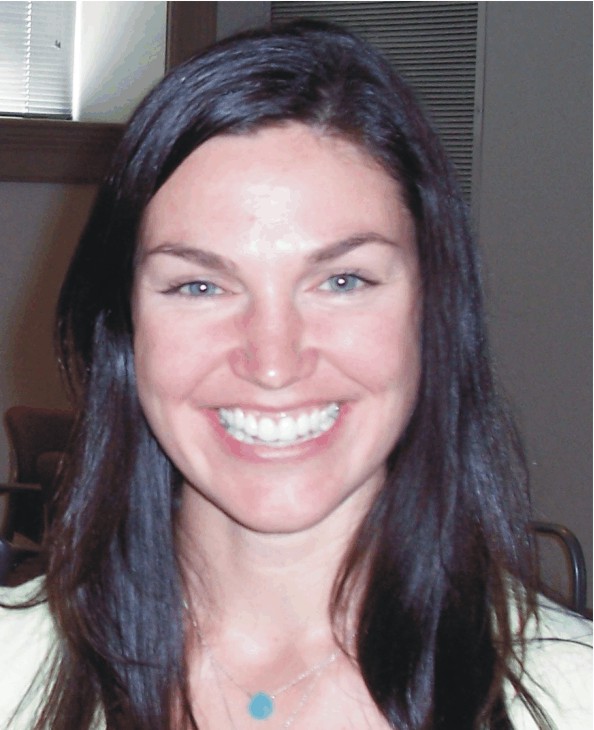April 5, 2010 at 2:00 pm
· Filed under Expert Opinion: Interviews and More
 In the first Five Questions for Public Interest Leader of April, we learned more about prosecutorial and defense work with Matthew Galluzzo. After graduating from Northwestern University School of Law, Mr. Galluzzo spent seven years in the Manhattan District Attorney’s office, in both the Trial and Appellate divisions. For part of his tenure, he was responsible for training more junior prosecutors and supervising their misdemeanor domestic violence cases. He then spent a year in a boutique commercial litigation firm before opening his own defense practice with a colleague from his Manhattan DA’s office days. His current practice is a blend of privately retained clients and court-appointed indigent defendants.
In the first Five Questions for Public Interest Leader of April, we learned more about prosecutorial and defense work with Matthew Galluzzo. After graduating from Northwestern University School of Law, Mr. Galluzzo spent seven years in the Manhattan District Attorney’s office, in both the Trial and Appellate divisions. For part of his tenure, he was responsible for training more junior prosecutors and supervising their misdemeanor domestic violence cases. He then spent a year in a boutique commercial litigation firm before opening his own defense practice with a colleague from his Manhattan DA’s office days. His current practice is a blend of privately retained clients and court-appointed indigent defendants.
Keep Reading to learn more about prosecution and defense work!
Permalink
March 11, 2010 at 10:30 am
· Filed under Expert Opinion: Interviews and More, Public Interest Jobs
For our latest edition of “Five Questions for a Public Interest Leader” we spoke with Craig Raynsford of the U.S. Department of Homeland Security (which has more than 1800 attorneys worldwide) Mr. Raynsford serves in the Office of the General Counsel at the Department of Homeland Security (DHS) where his responsibilities include developing and managing a new Honors Attorney Program and Summer Law Intern Program. Prior to transferring to DHS in 2003, Mr. Raynsford spent over twenty years as an attorney with the United States Department of Justice. While specializing in immigration and international law issues he additionally managed his division’s participation in the Attorney General’s Honors Program and Summer Law Intern Program. Mr. Raynsford is the recipient of the Attorney General’s John Marshall Award for Providing Legal Advice, the INS Commissioner’s Special Commendation Award for his work with the Government of Cuba resulting in the release of hundreds of political prisoners and the repatriation of Mariel Cuban criminals, and a Commendation from the DHS General Counsel for his work on the Katrina Task Force.
Read on for 5 Questions on Federal Legal Employment
Permalink
March 10, 2010 at 9:06 am
· Filed under Expert Opinion: Interviews and More, News and Developments
The Dover Post of Delaware has a brief-but-illuminating interview with Delaware’s Public Defender, Brendan O’Neill, in which he talks about the public perception of defenders “trying to get the bad guy off the hook” as opposed to being guardians of all citizens’ rights, the overwhelming caseloads which many defenders are carrying, and his motivation for the career path he’s chosen.
Permalink
March 8, 2010 at 4:00 pm
· Filed under Career Resources, Expert Opinion: Interviews and More
[Editor’s Note: this is the final installment in our three-part series on the importance of public-interest minded law students and junior attorneys developing leadership skills. In parts one and two, we heard from public interest attorneys who work on a daily basis to help the next generation of advocates cultivate those skills. Today, we hear from Todd Belcore, a third-year law student at Northwestern who has worked tirelessly to become a well-rounded public interest advocate and who has already emerged as a humble and dedicated leader among his peers.]
Todd Belcore is a third-year law student at the Northwestern University School of Law. He is the president of the Student Bar Association, and was awarded the 2009 PSLawNet Pro Bono Publico Award in recognition of his outstanding commitment to promoting public service in his law school community. After graduation, Todd will serve as an Equal Justice Works Fellow with the Sargent Shriver National Center on Poverty Law.
Six Tips for Developing Leadership Skills in Law School
- Listen. Leaders help others to solve problems. As a leader you must be able to discern the needs and interest of your audience – whether it’s clients, coworkers, or others – as quickly as possible. The good news is that people usually tell you what their needs and interests are. The bad news is that we advocates are sometimes too busy to really hear them. Listening is a perennially underrated skill that informs or implicates nearly all others. In law school, just like any other setting, you have the opportunity to learn more about interests, personalities, opinions and perspectives of others. Listening does three invaluable things: 1) it will broaden your perspective; 2) make you communicate in a more responsive and responsible manner; and 3) help inform how to approach an issue in a way that addresses others’ needs rather than simply your perception of their needs.
- Make ideas come to life. Everyone has ideas. Fewer can turn ideas into real programs, events, classes or policies. Leaders get those results. This phenomenon is actually a developable skill. If there is something your law school doesn’t offer, a program that hasn’t been implemented, an event that hasn’t been made available, an organization that hasn’t been formed, don’t be afraid to come up with some ideas and mobilize around changing that. This process alone will require you to plan, gather resources, build a base of contacts, and determine the audience you must convince to make that idea come to fruition. This process will essentially be mimicked no matter the level of the project you take on so the more experience you get with it, the better.
- Make yourself uncomfortable. A leader has to be in touch with his or her limitations. However, in order to learn precisely what those are, you must challenge any assumptions you have of yourself. What are you uncomfortable doing? Do you perceive that to be a weakness? Can it change? There is no better opportunity to answer those questions than in law school where there are a plethora of curricular and extracurricular opportunities. I have friends who came to school “knowing” they would never be oral advocates who are now on the trial team because they challenged their assumptions.
- Don’t be afraid to make mistakes. Leaders know they may have done something well, but they can always do better. Don’t be afraid to admit and learn from mistakes. There is often no better way to grow and learn than to make a mistake and ask for constructive criticism. Fortunately, law school is typically a good place to receive feedback but in the event you are not getting any or enough feedback, seek it out. You can’t fix areas that could use improvement unless you know about them, so ask for feedback.
- Learn to manage personalities. All leaders need help, and good leaders know how to get it. As society becomes more diverse and complex, it becomes more vital than ever to be able to work with – and influence – people with varying personality types, backgrounds and power. (Even amongst people with similar backgrounds and personality types, differences in work style will emerge; you should learn to notice those and learn how to work with all people based on their individual characteristics.) Law school provides you with an opportunity to recognize personality traits and work styles of your peers and coworkers, and to learn how to work efficiently with them. Take advantage of this opportunity as frequently as possible.
- Find your voice. Leaders are true to themselves. Law school is the ultimate place to not just learn about case law, but to learn more about yourself. However, it is also a place where you can lose yourself amidst the briefs, reading and argument. Therefore, it is critical to think about who you are, who you want to become and how law school will help you get there. Don’t just engage the law, but consider the law in light of your personal history and experiences. Don’t just take a side, but let that side be informed by loved ones and people you have met along the way. Finding your voice is not only personally fulfilling; it makes everything easier to communicate. It also reflects a level of comfort with oneself that makes a favorable impression on those around you. Every law school experience is a chance for you to find your voice, and to use it.
Permalink
February 25, 2010 at 9:00 am
· Filed under Career Resources, Expert Opinion: Interviews and More, Public Interest Jobs
[Ed. Note: last week we posted the first of three parts in our series on leadership-skills development for public-interest minded law students and junior attorneys. Today’s post, from former Equal Justice Works Fellow Emily Benfer, is the second. It builds off of the propositions that the most successful public interest leaders are driven by fundamental commitments to the ends they seek to achieve, and draw from more arrows in their quivers than trial advocacy and other traditional lawyering skills which are emphasized in law school.]
Emily A. Benfer is a public interest attorney in Washington, D.C., where she is currently co-teaching a course on Advocacy Tools for the 21st Century Public Interest Lawyer at Georgetown Law Center. She first employed advocacy strategies as an Equal Justice Works Fellow at the Washington Legal Clinic for the Homeless, and next year she will become the Director of a new Medical-Legal Partnership Clinic at Loyola University Chicago School of Law.
Advocacy Tools for the 21st Century Public Interest Lawyer at Georgetown Law Center. She first employed advocacy strategies as an Equal Justice Works Fellow at the Washington Legal Clinic for the Homeless, and next year she will become the Director of a new Medical-Legal Partnership Clinic at Loyola University Chicago School of Law.
The world of public interest law values creativity, collaboration and scrappiness – the courage to take calculated risks and engage in the kind of “out-of-the-box” thinking needed to reshape our communities. Public interest lawyers learn early on in their legal careers that legal prowess is only one of the many skills necessary to becoming an effective advocate for clients and causes. Our success is equally dependent on whether we access a full range of advocacy strategies that are critical to meeting client needs and creating measurable social change. The only problem is that most of us don’t learn these strategies in law school. It is my hope that these five tips will provide you with the framework to get started. Read Emily’s five tips after the jump…
Permalink
February 22, 2010 at 9:15 am
· Filed under Expert Opinion: Interviews and More, Public Interest Jobs
Dean JoAnne Epps’ legal career began with public service, as a prosecuting attorney on both the local and federal levels. A natural teacher, she moved into the academic world and ultimately into academic administration. Epps became the Temple Law dean in 2008, after over two dozen years of distinguished work as a professor and an associate dean. (She also taught your author the rules of evidence, and although I have no trial experience to speak of I retain an uncanny memory of hearsay exceptions some eight years down the road.)
levels. A natural teacher, she moved into the academic world and ultimately into academic administration. Epps became the Temple Law dean in 2008, after over two dozen years of distinguished work as a professor and an associate dean. (She also taught your author the rules of evidence, and although I have no trial experience to speak of I retain an uncanny memory of hearsay exceptions some eight years down the road.)
Without further ado, here are Five Questions with JoAnne Epps…
Permalink
February 18, 2010 at 10:23 am
· Filed under Career Resources, Expert Opinion: Interviews and More
Ed. Note: this guest post from Ericka Hines, a program manager at Equal Justice Works who specializes in working with law students and junior attorneys on building leadership skills, is the first in a series of three posts that will focus on the importance of cultivating those skills.
No Matter Where Your Career Takes You, the Chance to Lead Will Always Be There…
The idea for this post came from a colleague who was going to a law school to speak on the subject of leadership. She asked me for my thoughts on these questions and I decided that I would share my answers not just with students at one law school but as many who wanted to know. Enjoy!
Read Ericka’s leadership advice after the jump
Permalink
February 1, 2010 at 11:34 am
· Filed under Career Resources, Expert Opinion: Interviews and More
Occasionally we will feature guest authors here on the PSLawNet blog to share their unique wisdom and insights with you. Today, we have Andy Cowan writing about five things he wish he’d known while he was still in law school. Andy graduated cum laude from the Cornell Law School in 2008. He summered at the Pro Bono Project of New Orleans and the Public Defender Service for the District of Columbia, and now works as a public defender at the Committee for Public Counsel Services in Lowell, MA. Andy is an editor of the Public Defender Blog “Incorrigible Dicta” at http://www.dictablog.net.
Keep Reading for Andy’s Advice
Permalink
January 28, 2010 at 10:35 am
· Filed under Expert Opinion: Interviews and More

Joy Moses is a Policy Analyst at the Center for American Progress.
A recurring feature on the blog will be “Five Questions for a Public Interest Leader” – a short interview with a variety of public interest legal leaders including non-profit directors, public defenders, law school administrators, and more. Our fifth installment is with Joy Moses, a policy analyst in the Poverty and Prosperity program at Center for American Progress. Before starting at the Center, she worked at the National Law Center on Homelessness and Poverty focusing on educational issues facing homeless students, and she started her career at the NAACP Legal Defense Fund where she also focused on education issues. Our questions with her today focus on her experience as a policy-oriented lawyer.
Keep reading to learn more about policy lawyering.
Permalink
January 21, 2010 at 1:38 pm
· Filed under Expert Opinion: Interviews and More

Derwyn Bunton, Chief Public Defender of Orleans Parish
A recurring feature on the blog will be “Five Questions for a Public Interest Leader” – a short interview with a variety of public interest legal leaders including non-profit directors, public defenders, law school administrators, and more. For our fourth “Five Questions” we spoke with Derwyn Bunton, the Chief Public Defender for Orleans Parish (serving the city of New Orleans, Louisiana). Mr. Bunton is 1998 graduate of New York University School of Law and has been Chief Public Defender since the fall of 2008. Before that he worked for the Juvenile Justice Project of Louisiana and Juvenile Regional Services, serving youth involved in the criminal justice system. Mr. Bunton was incredibly generous with his time, and as a result this is a special 7-question edition of Five Questions for a Public Interest Leader.
Read the Questions and Answers!
Permalink
 In the first Five Questions for Public Interest Leader of April, we learned more about prosecutorial and defense work with Matthew Galluzzo. After graduating from Northwestern University School of Law, Mr. Galluzzo spent seven years in the Manhattan District Attorney’s office, in both the Trial and Appellate divisions. For part of his tenure, he was responsible for training more junior prosecutors and supervising their misdemeanor domestic violence cases. He then spent a year in a boutique commercial litigation firm before opening his own defense practice with a colleague from his Manhattan DA’s office days. His current practice is a blend of privately retained clients and court-appointed indigent defendants.
In the first Five Questions for Public Interest Leader of April, we learned more about prosecutorial and defense work with Matthew Galluzzo. After graduating from Northwestern University School of Law, Mr. Galluzzo spent seven years in the Manhattan District Attorney’s office, in both the Trial and Appellate divisions. For part of his tenure, he was responsible for training more junior prosecutors and supervising their misdemeanor domestic violence cases. He then spent a year in a boutique commercial litigation firm before opening his own defense practice with a colleague from his Manhattan DA’s office days. His current practice is a blend of privately retained clients and court-appointed indigent defendants.



